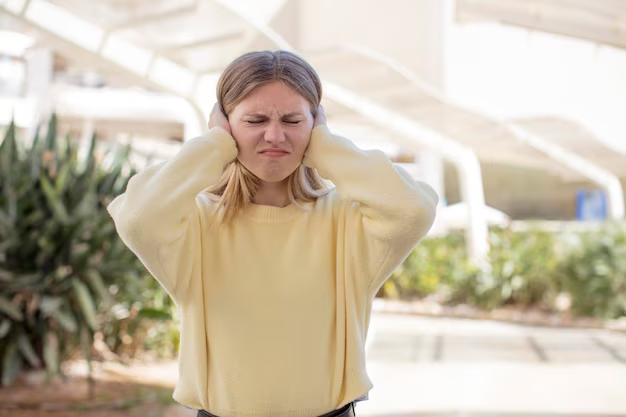Understand Vertigo: Exploring Causes, Treatments, and Possibilities for Relief
Imagine feeling as if the world around you is spinning out of control, yet everything appears still to those around you. This sensation, known as vertigo, can be both disorienting and debilitating for those who experience it. But is vertigo curable? Let's delve into this topic to understand what vertigo is, its potential causes, and the options available for managing this condition. We'll provide insight into various treatments and explore whether complete relief from vertigo is possible.
What Exactly is Vertigo?
Vertigo: So much more than simple dizziness, vertigo is the illusion of movement—often described as spinning—when you're not moving at all. It's a specific type of dizziness characterized by a false sense of motion, making you feel as if you are tilting or rotating. This unsettling sensation can impact balance and stability, affecting day-to-day activities and quality of life.
Common Symptoms of Vertigo
- Spinning sensation: The most recognizable symptom, creating the feeling that you or your surroundings are moving.
- Balance disturbances: Difficulty standing or walking straight.
- Nausea or vomiting: Often accompanies the intense disorientation.
- Visual disturbances: Such as double vision or trouble focusing.
- Hearing changes: Sometimes, vertigo is accompanied by hearing loss or ringing in the ears (tinnitus).
Understanding the Causes of Vertigo
Vertigo isn't a disease in itself but rather a symptom of various underlying conditions. Some of the most common causes include:
Benign Paroxysmal Positional Vertigo (BPPV)
BPPV is one of the leading causes of vertigo. It occurs when tiny calcium particles accumulate in the semicircular canals of the inner ear, causing temporary bouts of vertigo when changing head positions.
Meniere’s Disease
This inner ear disorder is characterized by episodes of vertigo, hearing loss, and tinnitus. It's thought to be related to an imbalance of fluid pressure in the ear, but the exact cause remains unclear.
Vestibular Neuritis
Often stemming from a viral infection, this condition inflames the nerves connected to the inner ear, leading to intense vertigo episodes.
Migrainous Vertigo (Vestibular Migraine)
Some migraines can cause vertigo, with or without the typical headache. The connection between migraines and vertigo isn't completely understood, but it’s believed to be due to alterations in brain function associated with migraine processes.
Head or Neck Injuries
Injuries affecting the head or neck, especially those impacting the vestibular system, can lead to episodes of vertigo and imbalance.
Treatment Options for Vertigo
The path to managing vertigo depends heavily on its origin, prompting tailored approaches for each underlying cause. While not all cases of vertigo can be “cured” in the traditional sense, many can be managed effectively with the appropriate treatment strategies.
Physical Therapy and Head Maneuvers
For BPPV, physical therapy techniques such as the Epley Maneuver or Semont Maneuver are highly effective. These movements help relocate displaced ear crystals back to their correct position.
Medications
Several medications can alleviate vertigo symptoms, including:
- Antihistamines: Often used to reduce dizziness and nausea.
- Benzodiazepines: Sometimes prescribed for severe vertigo to sedate the vestibular system.
- Antiemetics: Help manage nausea and vomiting associated with vertigo episodes.
Dietary Adjustments
Managing vertigo symptoms, especially those related to Meniere’s Disease, may involve dietary changes:
- Reduced sodium intake: Helps minimize fluid retention in the body.
- Caffeine and alcohol limitation: These substances can exacerbate inner ear issues.
Vestibular Rehabilitation Therapy (VRT)
This specialized form of physical therapy is designed to enhance balance and reduce problems related to dizziness. VRT exercises train the brain to rely more on alternative signals for balance, promoting recovery from vestibular dysfunction.
Surgical Options
In rare situations where non-surgical methods don't suffice, surgical interventions like labyrinthectomy or endolymphatic sac decompression might be considered, often in severe cases of Meniere's Disease.
Lifestyle and Home Remedies
Everyday practices and home remedies can complement other treatments for vertigo:
- Regular exercise: Improves overall balance and coordination. Consider activities such as yoga or tai chi, which are particularly effective at enhancing balance.
- Hydration: Ensure you're drinking enough fluids, but avoid sugary or caffeinated drinks.
- Rest: Adequate rest can help mitigate vertigo symptoms, especially if they are stress or fatigue-related.
Is Vertigo Truly Curable?
The burning question remains: Is vertigo entirely curable? The answer varies. For some, especially those with BPPV, complete recovery through maneuvers and therapy is achievable. Others, particularly those with chronic conditions like Meniere’s Disease or vestibular migraines, might find that vertigo is a recurring issue requiring ongoing management.
Key Takeaways:
- Acute vs. Chronic: Some forms of vertigo can be completely cured, while chronic conditions might be managed effectively but not entirely eradicated.
- Tailored Approach: Due to the varied causes, treatment must be personalized, focusing on the specific underlying condition driving vertigo symptoms.
- Empowerment through Management: Even if a complete cure isn't possible, advances in treatment can significantly improve quality of life for those living with vertigo.
Ultimately, while the prospect of a cure is uncertain for all, understanding one's specific type of vertigo and engaging in proactive management empowers sufferers to lead balanced, fulfilling lives even in the presence of this dizzying challenge.
Summary: Vertigo Management at a Glance
- 🌀 Identify Causes: Know your vertigo type for appropriate treatment.
- 💪 Utilize Physical Therapy: Techniques like the Epley Maneuver can offer significant relief for BPPV.
- 💊 Consider Medications: Antihistamines and antiemetics may alleviate symptoms.
- 🥗 Adopt a Suitable Diet: Low sodium intake and caffeine reduction can help, especially with Meniere’s Disease.
- 🧘♀️ Engage in Balance Exercises: Activities like yoga support stability and lessen symptoms over time.
- 🩺 Consult Healthcare Professionals: For tailored treatment strategies and advanced intervention options.
Taking these steps, individuals can navigate the choppy waters of vertigo, steering towards a life where its impact is minimized and manageable.

Related Articles
